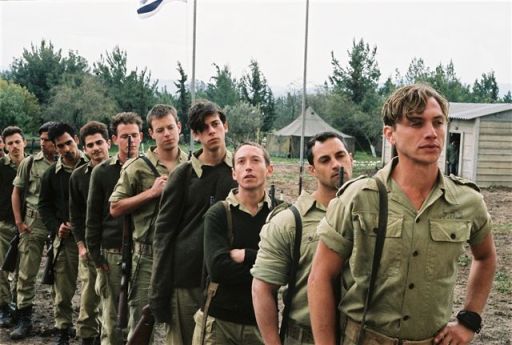
Dover Kosashvilli’s ‘Infiltration’, based on the novel by Yehoshua Kenaz and set in the early 1950’s, is about a platoon of newly recruited young soldiers going through basic training. They are all designated for non-combat assignment, due to physical disability or mental incompatibility. Ashkenazi and Sephardic, crass and urbane, religious and secular, urban and rural, scarred refugees and confident Sabras, with at least a half-dozen different mother-tongues: they are the quintessential melting pot that this country was at its founding, and which still survives in the IDF to this day. But as the title suggests this is not a utopia held together through brotherly love. Each of these young men is on his own here, trying to find his place in the impersonal and not terribly sympathetic IDF.
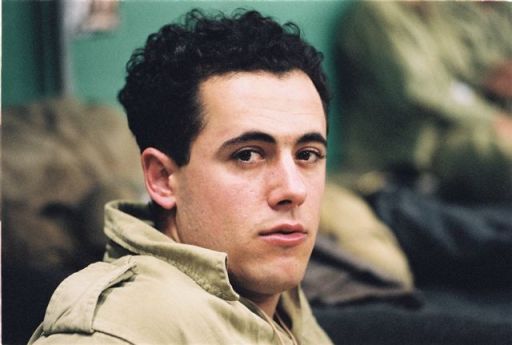
The film particularly focuses in on three of the young men. There’s the idealistic Kibbutznik (Oz Zehavi) who handsomely fits the bill of the fighting Sabra, the romantic, clean-cut hero who believes he was mistakenly designated for a non-combat role, and dreams of going to the paratroopers. There is the wise-ass heartthrob who just wants to pass his three years as comfortably as he can, in between his sexual dalliances. And there’s the North African class-clown, who is the bumbling comic-relief, but also the easiest member of the platoon to bully around. Among those surrounding them, we have an epileptic American who is a constant source of aw-shucks encouragement and the newly wed European with a skin condition who is not terribly devoted to the army, but can’t wait for his first child to be born, the first Sabra in the family.
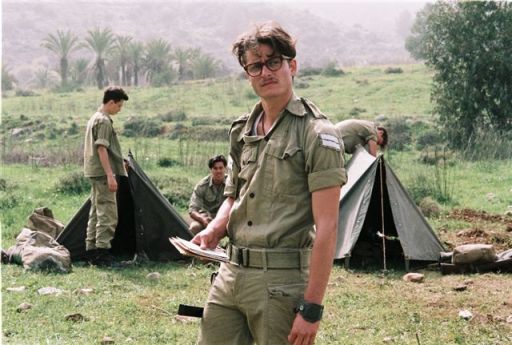
In charge of all these men is their C.O., played by Michael Aloni, who like many C.O.s in basic training, is alternately proud, bemused, frustrated and sadistic with his men. A sense of entitlement enforces his every move- something which, interestingly, does not apply towards the other figures of military authority in the film, who lovingly fit in to the stereotypes of tough, but fair commanders -and all of whom are Sephardic with thick accents, as opposed to the Ashkenazi Aloni.
To play all these characters, Kosashvilli made the daring move to cast the movie entirely with practically unknown actors. The move more than paid off- a star cast might have unbalanced the focus of the film, and (like the cast of ‘Saving Private Ryan’, who at the time were mostly unknown) new faces give new life to enshrined stereotypes and clichés.
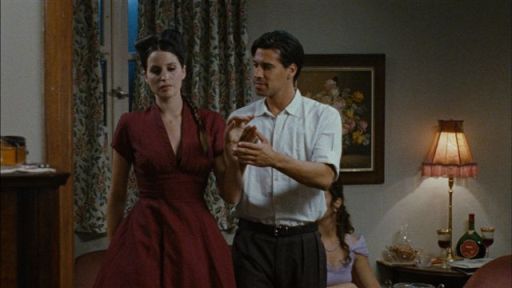
As someone who went through a very similar kind of basic training as is depicted in the film, I can attest to the accuracy of Kosashvilli’s extreme portrait of this experience. This film is positively manic-depressive, swinging from absurd high-comedy to the absurdity in military bureaucracy to disturbing acts of violence and despair at the effects that the rigid army has on some of the men. Surprisingly, the film is very happy not to get caught up in any one tone. At times it is a nostalgic celebration, at times genuinely moving (without the distance of nostalgia), at times quite bleak. Some of the scenes don’t come off as well as others. Too much time is spent on the Don Juan of the group aggressively courting a young woman on a night off -though even that is wonderfully observed, how the young man’s horny insincerity becomes something more by the time the night is done.
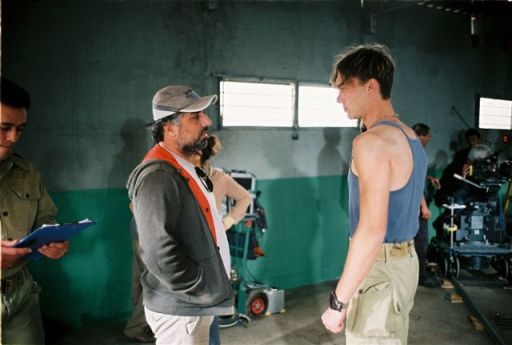
Watching the film – being unfamiliar with the source material – I was waiting for the other shoe to drop, for a melancholy or outright anguished undercurrent to take over the film. But that turn for the unambiguously critical, that ironic twist I was waiting for, never really came. Kosashvilli is performing a high-wire act here, giving the good and the bad, the inspirational and the nihilistic. It is tempting to call this a dark comedy -especially given events shown in the last few minutes of the film- but, in truth, I don’t think its comedy is generally tinged with darkness. When this film is funny (which is very often), it strikes me as being open about it – there is the sardonic twist every now and then, but in general, its comedy subscribes to the grand tradition of Israeli military humor. And when it is disturbing, it presents it starkly and moves on. Tragedy doesn’t necessarily stain everything that surrounds it.
My own personal experience with this film, as a complex but surprisingly earnest one, may be in the minority- I’m sure a lot of people will see it as a more ironic and sardonic film. Either way – Kosashvilli has made a terrific film. Of all the in-competition films I’ve seen, none in my mind makes for a more compelling viewing, discussion or argument than ‘Infiltration’.
SHLOMO PORATH






Comments are closed.